Video Analytics Integration
The E5 camera series offers video analytics with various VCA functions that can be integrated into G-Core. To use these, you must configure the video analytics in the user interface of the camera and then activate and configure them in G-Set. The video analytics events are then sent from the camera to G-Core as VCA actions.
Configuration in the Camera User Interface
In the user interface of the camera, select the video analytics behavior and define the zones to be analyzed.
For detailed information on the user interface of the camera, see the G-Cam/E5 web browser manual.
-
Enter the IP address of the camera in the browser to reach the user interface and navigate to System > Events > Video Analytics.
-
In the Video Analytics drop-down menu
 , select the video analytics profile you want to configure.
, select the video analytics profile you want to configure. -
Select the On check box
 to activate the video analytics.
to activate the video analytics. -
In the Selected Behaviors drop-down menu
 , select the behavior you want to use.
, select the behavior you want to use.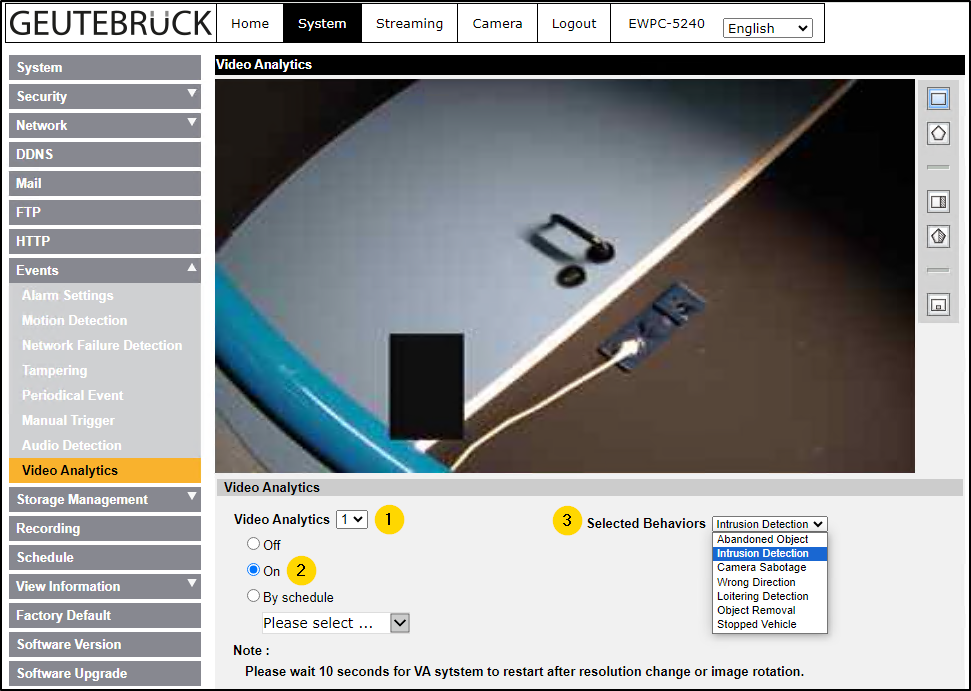
-
In the camera image, draw the areas to be analyzed using the tools from the toolbar. This is required for all behaviors except the behavior Camera Sabotage. The Zone Settings section appears.
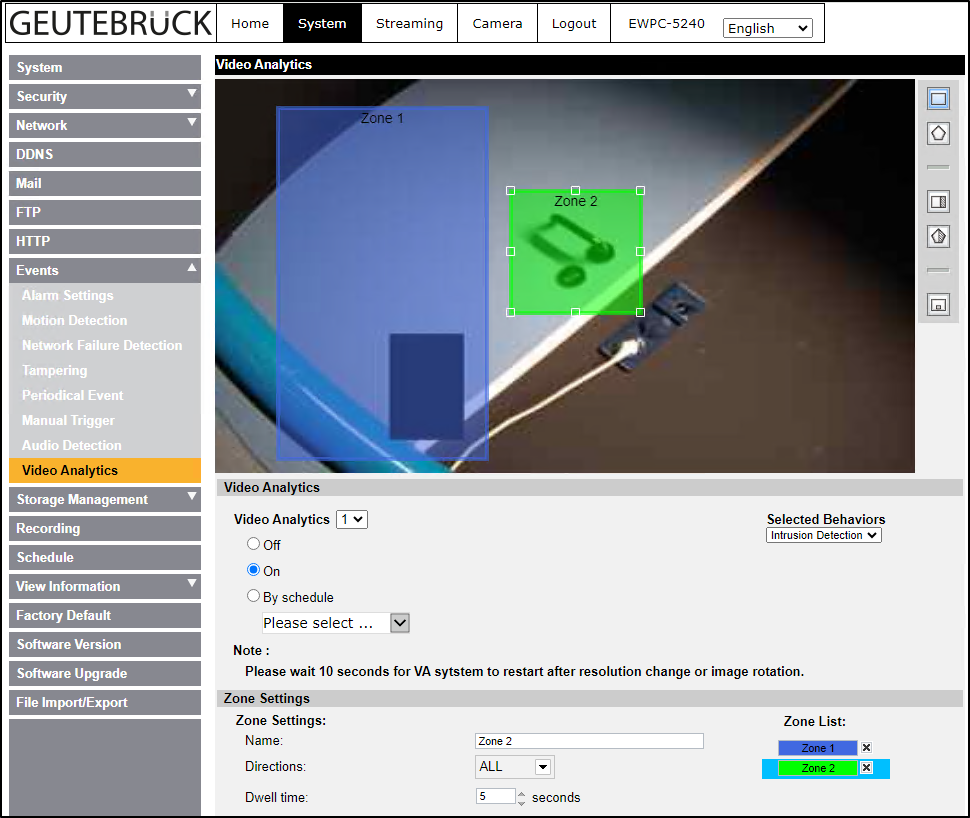
-
In the Zone Settings section, define the behavior of the video analytics.
The zone settings vary depending on the selected video analytics behavior.
Setting
Description
Name
Name of the selected zone.
Do not change the zone name. The default name is used to trigger the event in G-Core (see Create an Event). If you want to change the name, note the default name of the respective zone.
Directions
Select the desired direction of movement.
Dwell time
Specify the time in seconds how long the alarm remains activated.
Delay before alarm
Specify the time in seconds that it takes for the event to be activated.
Sensitivity
Specify how sensitive the camera reacts to changes.
Trigger type
Select the trigger type that triggers the event.
-
In the Triggered Action & File name section, you can define activities for the triggered alarms and the file name.
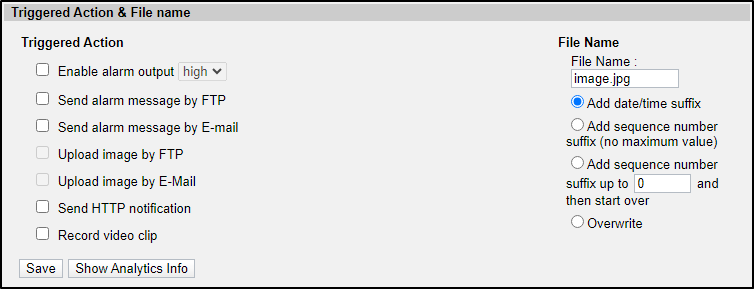
-
Click Save.
After adding or deleting zones, you must check the VCA zones in G-Set to read out the existing zones from the camera (see Check VCA Zones).
Example
In this example, the video analytics behavior Intrusion Detection is selected and the zone to be analyzed is drawn in the camera image.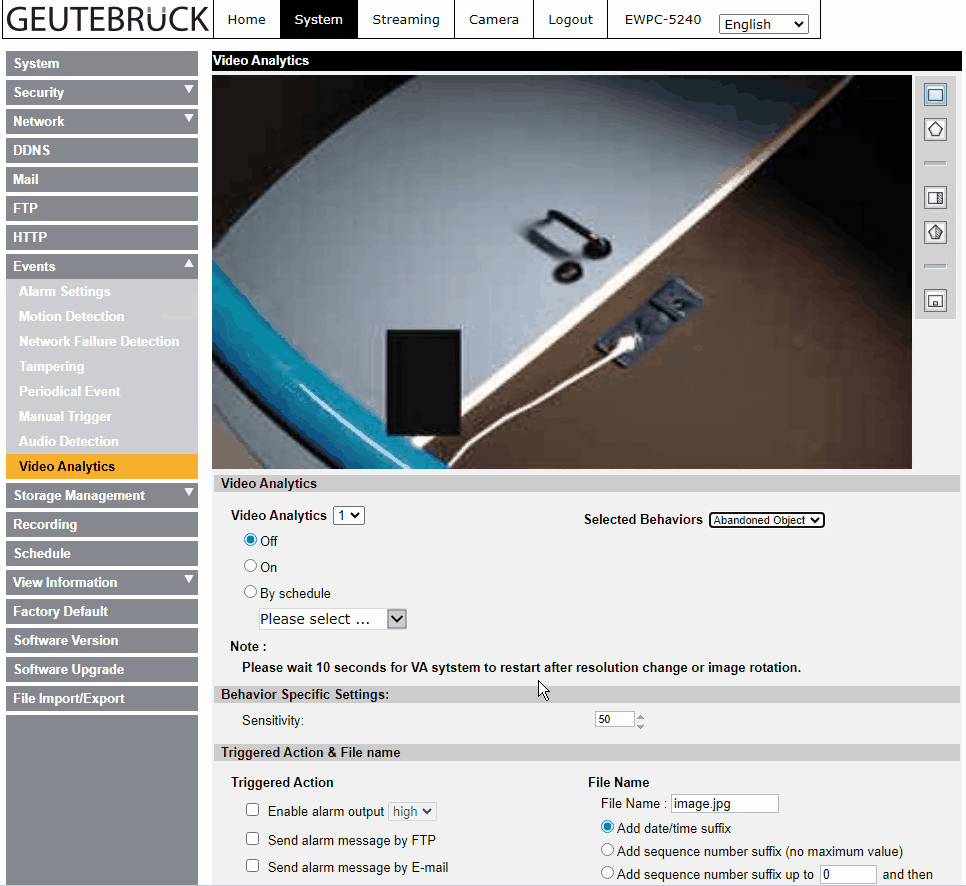
Configuration in G-Set
In G-Set, check the VCA zones and create an event for the used video analytics.
Check VCA Zones
Read out the configured zones for the video analytics from the camera.
-
Select the plugin of the camera in the Hardware module list.
-
Open the VCA Bridge tab and make sure that the VCA Bridge is disabled.
-
Open the Event handling tab and enable the VCA option
 .
. -
Click on Check VCA Zones
 to read out the existing zones from the camera.
to read out the existing zones from the camera.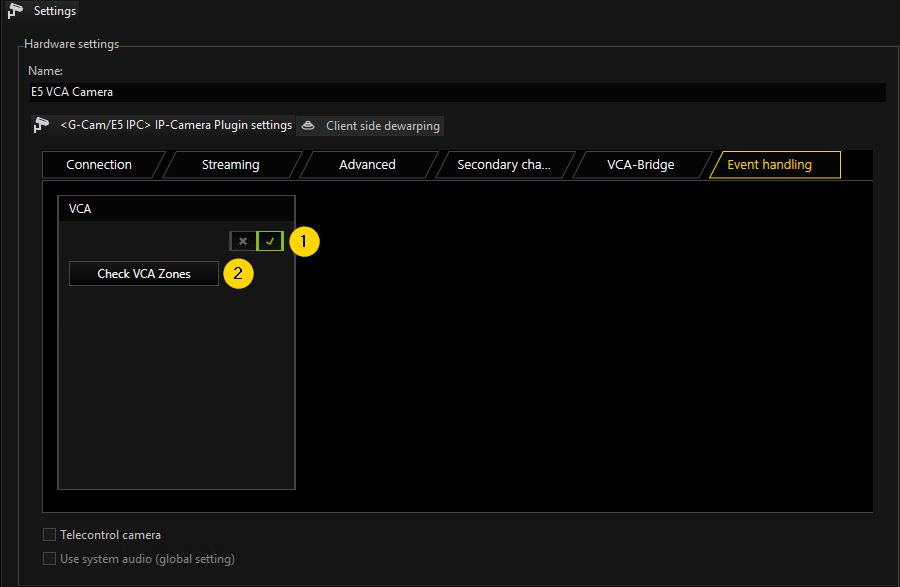
-
Click the
 icon in the menu bar to send all changes to the server.
icon in the menu bar to send all changes to the server.
Create an Event
Create an event to retrieve the video analytics events from the camera as VCA actions in G-Core.
-
Create an event.
-
Add an action to the event. Select the corresponding VCA action for the configured video analytics behavior of the camera.
The video analytics events are transferred from the camera to G-Core as the following VCA actions.
Video Analytics Behavior
VCA Action
Abandoned Object
VCA Alarm Object Idle
Intrusion Detection
VCA Alarm Enter Field
Camera Sabotage
VCA Alarm Tampering
Wrong Direction
VCA Wrong Direction
Loitering Detection
VCA Alarm Loitering
Object Removal
VCA Alarm Object Removed
Stopped Vehicle
VCA Stopped Vehicle
-
Specify the following parameters of the action.
Parameter
Description
channel
Select the media channel of the camera.
zone name
Enter the zone name as follows: VCA analytics behavior + / + Default name of the zone, without spaces.
Example If you want to trigger the action for the Intrusion Detection VCA analytics behavior in Zone 1, you must specify the zone name as follows: IntrusionDetection/Zone1.

-
Click the
 icon in the menu bar to send all changes to the server.
icon in the menu bar to send all changes to the server.